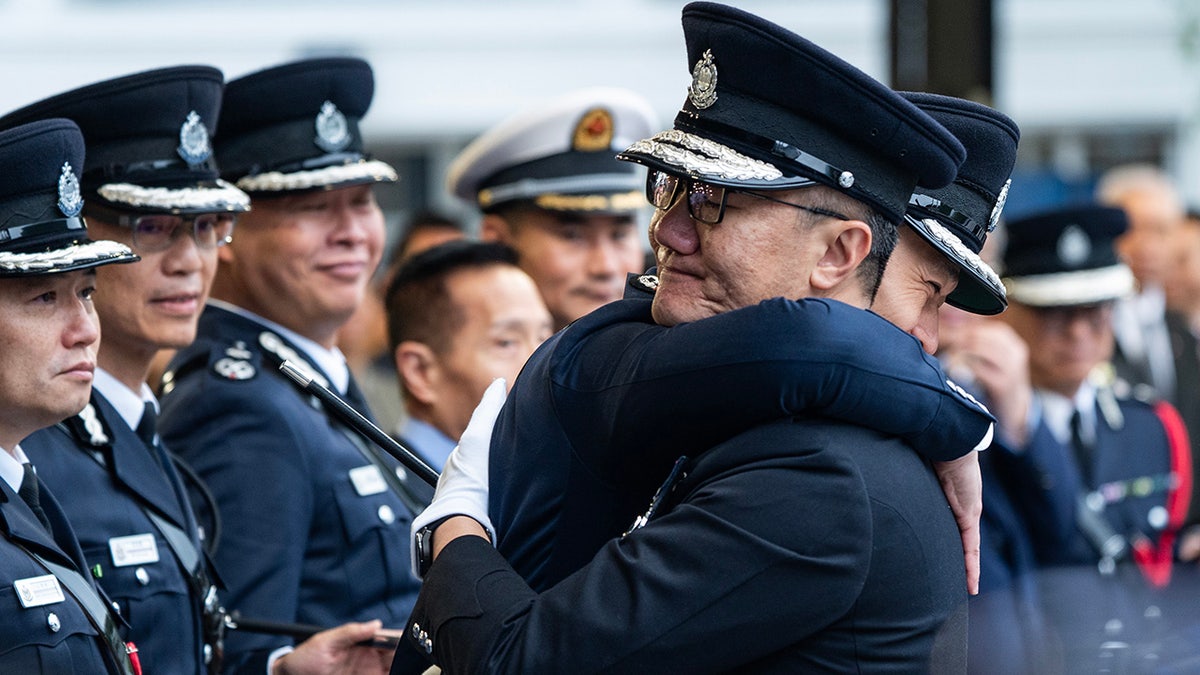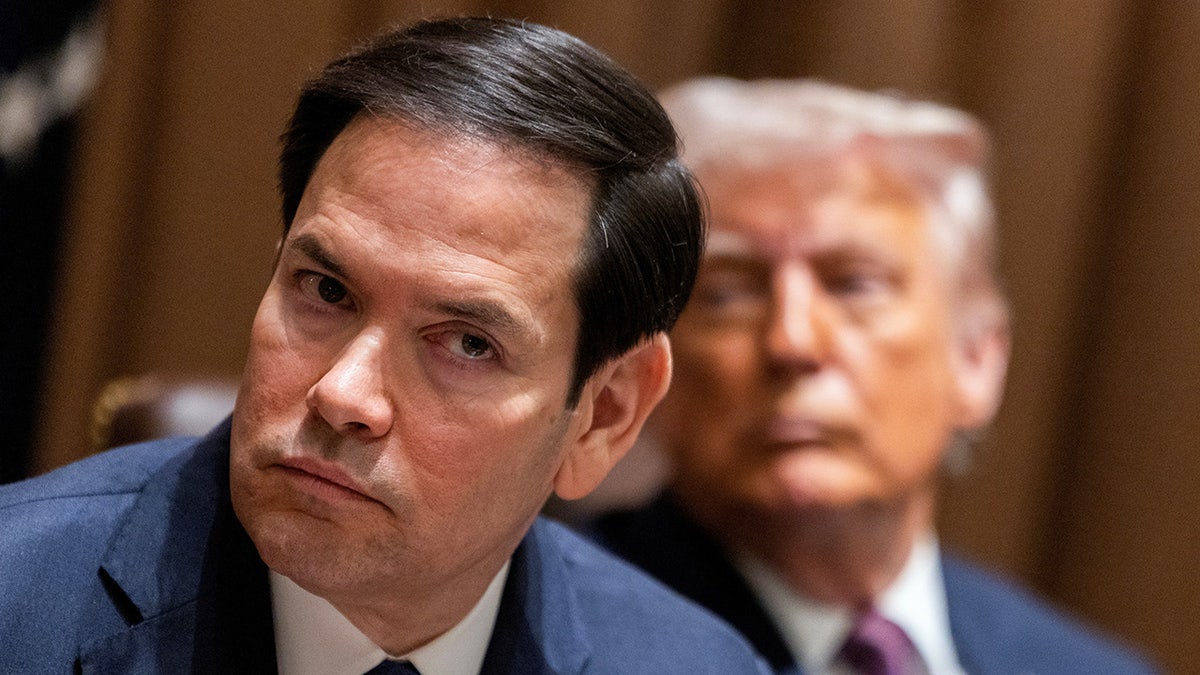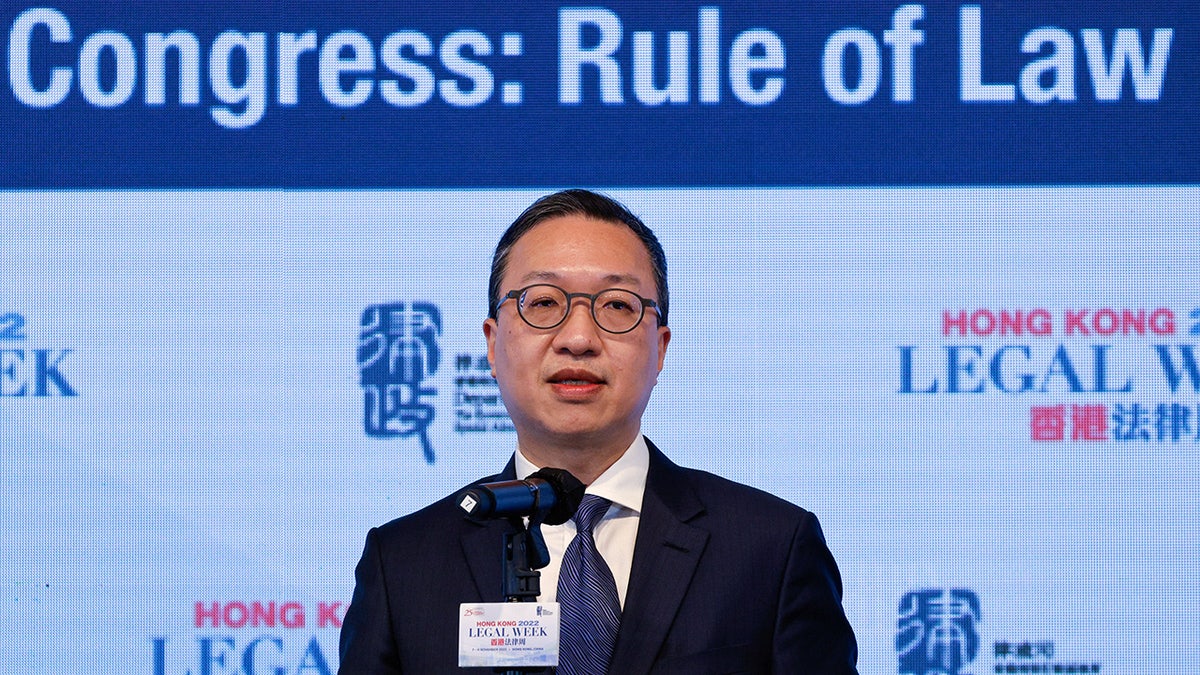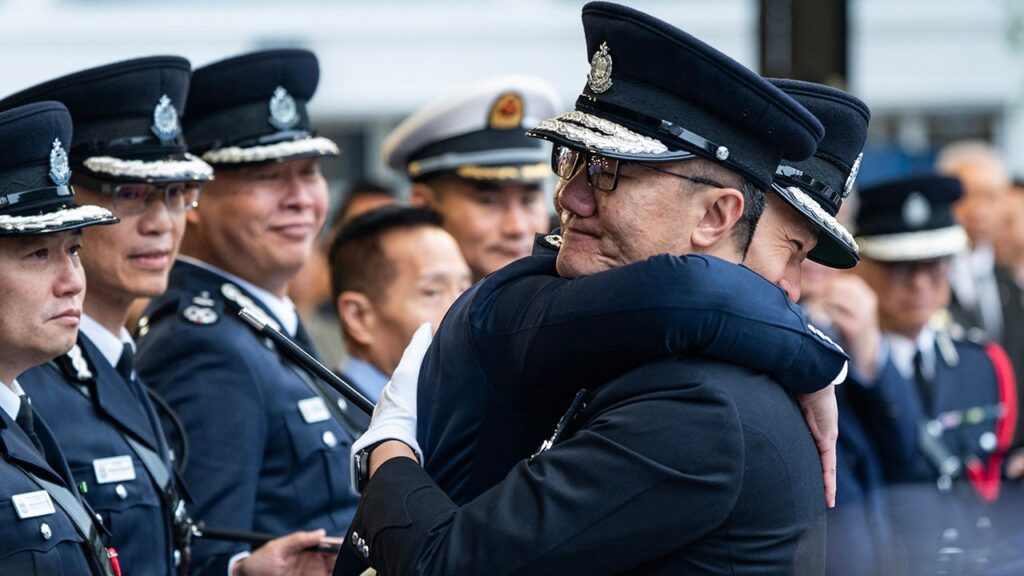The State Department sanctioned six Beijing and Hong Kong authorities who Secretary of State Marco Rubio said “have engaged in actions or policies that have degraded the autonomy of Hong Kong, including in connection with transnational repression targeting individuals residing in the United States.”
Rubio announced Monday that the actions “demonstrate the Trump Administration’s commitment to hold to account those respondsible for depriving people in Hong Kong of protected rights and freedoms or who commit acts of transnational repression on U.S. soil or against U.S. persons.”
Those sanctioned include Sonny Chi Kwong Au – the Secretary-General for the Committee for Safeguarding National Security in Hong Kong – and Raymond Chak Yee Siu, the Police Commissioner of Hong Kong Police Force. The other four sanctioned were identified as Dong Jingwei, Dick Chung Chun Wong, Margaret Wing Lan Chiu and Paul Ting Kwok Lam.
“Beijing and Hong Kong officials have used Hong Kong national security laws extraterritorially to intimidate, silence, and harass 19 pro-democracy activists who were forced to flee overseas, including a U.S. citizen and four other U.S. residents,” the State Department said.
45 PRO-DEMOCRACY HONG KONG ACTIVISTS SENTENCED TO UP TO 10 YEARS IN PRISON UNDER CHINA-BACKED LAW

Raymond Chak Yee Siu, right, who is the Commissioner of Police of the Hong Kong Police Force, embraces his colleague during the Hong Kong Police College’s passing-out parade on March 29, 2025, in Hong Kong, China. (Hou Yu/China News Service/VCG via Getty Images)
Lam, according to the State Department, “is the Secretary for Justice, Hong Kong in the Regional Government Ministers category, and has been responsible for or involved in developing, adopting, or implementing, the National Security Law.”
Last year, Human Rights Watch said the “Safeguarding National Security Ordinance punishes peaceful speech and civil society activism with heavy prison sentences, expands police powers, and weakens due process rights.”
HONG KONG LAWMAKERS UNANIMOUSLY PASS CONTROVERSIAL SECURITY LAW, GRANTING GOVERNMENT POWER TO CURB DISSENT

Secretary of State Marco Rubio, shown here with President Donald Trump during a Cabinet meeting at the White House on March 24, said the actions announced Monday “demonstrate the Trump Administration’s commitment to hold to account those responsible for depriving people in Hong Kong of protected rights and freedoms or who commit acts of transnational repression on U.S. soil or against U.S. persons.” (Reuters/Carlos Barria)
“As a result of today’s sanctions-related actions, and in accordance with E.O. 13936, all property and interests in property of the sanctioned persons described above that are in the United States or in possession or control of U.S. persons are blocked and must be reported to the Department of Treasury’s Office of Foreign Assets Control (OFAC),” the State Department said.
“Additionally, all individuals or entities that have ownership, either directly or indirectly, 50 percent or more by one or more blocked persons are also blocked,” it continued.

Hong Kong’s Secretary for Justice Paul Ting Kwok Lam speaks in Hong Kong in November 2022. (Reuters/Tyrone Siu)
“All transactions by U.S. persons or within (or transiting) the United States that involve any property or interests in property of designated or otherwise blocked persons are prohibited unless authorized by a general or specific license issued by OFAC or exempt from U.S. sanctions,” according to the State Department. “These prohibitions include the making of any contribution or provision of funds, goods, or services by, to, or for the benefit of any blocked person and the receipt of any contribution or provision of funds, goods, or services from any such person.”
Fox News’ Nick Kalman contributed to this report.
https://www.foxnews.com/politics/us-sanctions-6-beijing-hong-kong-authorities-undermining-island-regions-autonomy


